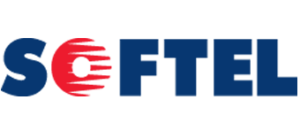Inclusivity, Diversity and Pride

What the pandemic taught us about inclusivity, diversity and Pride Month
Post by: John Cognata
As I’m writing this article, we’re approaching the end of Pride Month. June is a time dedicated to inclusivity, the celebration of diversity, and the connections between people. Every year, Pride Month represents an opportunity for people to show their true selves and connect to like-minded peers. This year, in particular, Pride Month has felt particularly meaningful.
Let’s look at some of the wonderful things happening right now.
- Carl Nassib from the Raiders announced he was gay – a first for the N.F.L
- Germany lit up its stadium in all the colors of the rainbow in an act of solidarity
- Juneteenth became a federal holiday, and a national holiday in the US
I commented in a previous LinkedIn article on the pandemic and how the global virus changed the way we do business. During that article, I noted that the crisis helped to showcase some of the very best elements of humanity. We saw an outpouring of compassion and love from all corners of the globe. During that whole period, we also came to appreciate more those who were on the front line – particularly healthcare workers. Geographical and cultural walls began to break down, as we all agreed we were “all in this together”, regardless of our diversity.
Dozens of celebrities and corporations have taken the opportunity to come out and showcase their true selves, and countless brands showed their support by donning rainbow colors in the logos and products. It’s been a beautiful experience and one that makes me proud to be a part of a company like SOFTEL – a brand that has always prized diversity, inclusivity, and freedom of expression.
A Diverse World is a Better World
The heightened state of awareness, acceptance, and inclusivity in the world for Pride Month 2021 got me thinking about how valuable inclusivity and diversity can be.
When the pandemic hit in 2020, it showed absolutely no bias towards who could be infected. Anyone, no matter their age, gender, race, or sexual orientation, was a potential victim. We all had (and continue to have) a shared enemy. This global event prompted the rise of a new community – one focused on protecting the human race. Rather than fretting over our perceived differences, we began focusing more on what made us the same.
Of course, I’m not saying that discrimination and hatred are a thing of the past. There are still far too many people who allow outdated concepts to guide their decisions and behavior. However, over the last year, we’ve started to get glimpses of what can happen when we break down the barriers between communities and groups.
By working together on a global scale, we created vaccines for COVID within less than 12 months – an incredible accomplishment for the healthcare landscape. The way we live, and work changed on an astronomical scale too. Remote and distance working went from being an unusual concept to a standard part of the workplace almost overnight. This opened the door to more diverse hiring opportunities. We can now find talent anywhere in the world, regardless of their race, culture, or even physical disabilities.
The Lessons We Learned from COVID
The COVID pandemic has been a terrible experience for the human race, but like any crisis, it also delivered opportunities for learning and growth. As mentioned above, we discovered we could work just as well in remote environments and combine research from around the world to unlock new ideas. During 2020, experts said that COVID has accelerated digital transformation by 7 years. We all became more digitally savvy, but we began to improve on a more human level too.
Viruses don’t discriminate; they work in unison to evolve and overcome challenges. As human beings, we need to take the same approach. At SOFTEL, I’ve seen first-hand what people can accomplish when they leave discrimination behind, and focus on collaboration, communication, and acceptance on a wider level.
With solutions like Microsoft Teams bringing people together all over the world, there’s now no limit to how, or where we connect and communicate. Everyone can be a part of the same community, working towards the same aligned goals. I believe we can unlock incredible new opportunities by continuing to embrace diversity and inclusion.
Businesses need to:
- Embrace expanded opportunities: With employees working from home, companies can tap into diversity in a variety of new ways. For those who would otherwise struggle to reach an office, there’s now Microsoft Teams and collaboration tools to bring people together. There’s no excuse for not broadening your talent circle.
- Remain educated: Companies can’t just say they’re diverse anymore; they need to think carefully about how they’re approaching inclusion, and what diversity should mean to them. As you accept new people and communities into your workforce, make sure you’re open to learning about what they need to deliver their best work. Communicate with your team, set up feedback loops, and commit to constant transformation.
- Update company culture: Company culture isn’t just a pool table in a break room. In the new age of hybrid and remote working, businesses will need to work harder than ever to make everyone feel like part of the same team. Acceptance, trust, and community should be built into the very core of the business. Make it easy for people to chat and share their fears, concerns, and ideas. Open the door to everyone having the freedom to be themselves.
- Support your workforce: More than ever, we’re seeing companies investing more into the empowerment and protection of the workforce. We’ve seen a rising focus on things like mental health awareness and looking after each other. Even the pandemic is over, people in a shared company should still be “all in this together.” Make sure you’re giving people the help they need, whether it’s guidance for mental health or extra time off.
- Invite transformation: Embracing true inclusion and diversity can be a learning curve. Business leaders need to be open to insights and ideas from other members of staff. Invite everyone in your workplace to have a seat on the table, and value their input.
The Future is Diverse
I’m thrilled to be part of a company that’s prospering by actively bringing all kinds of intelligent people together. I truly believe that in the years to come, it will be the inclusive, accepting, and diverse companies that generate the best outcomes. We’ve already seen what people can do when they work together. Now it’s time to take that idea to a new level.
In echoing my colleagues in France – Vive la différence et embrace la diversité!



